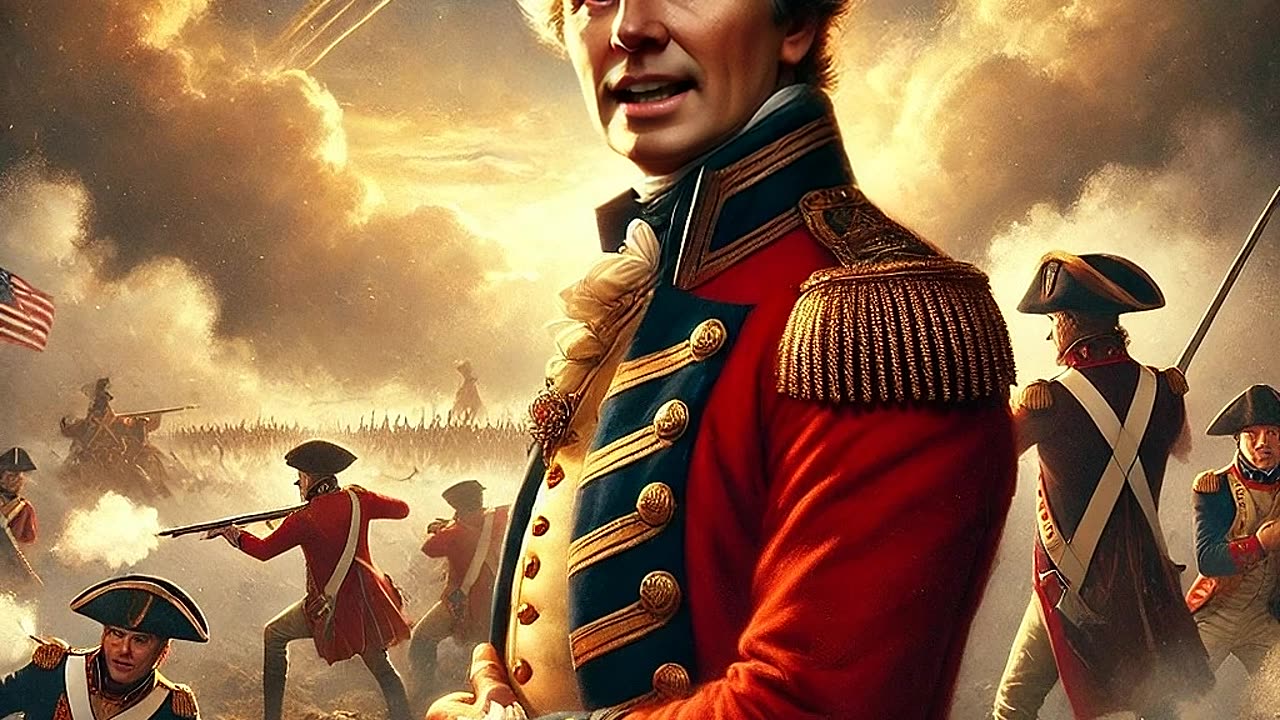Premium Only Content

General John Burgoyne Tells His Story The First British General to Surrender in the Rev
Presented to you by: http://www.HistoricalConquest.com
Read more on our blog at: https://www.historicalconquest.com/blog
I am General John Burgoyne, and I am perhaps best remembered for my campaign during the American Revolutionary War that ended in my surrender at Saratoga. I had always considered myself a man of talent, both on and off the battlefield. Before the Revolution, I was a British officer and a member of Parliament. But my reputation, for better or worse, became tied to the events of 1777.
When I was given command of British forces in Canada, my mission seemed straightforward enough: march south, cut off the rebellious colonies from each other, and put an end to the American uprising. The plan was ambitious, and I believed in it wholeheartedly. I would move south from Canada, while other British forces would converge from New York and elsewhere, isolating New England and crushing the Patriot cause. Victory seemed almost inevitable.
In June of 1777, I began my march with a force of around 8,000 men, including British regulars, Hessian mercenaries, and Loyalists. As we moved through the wilderness, we encountered challenges—thick forests, rivers to cross, and long supply lines that stretched back to Canada. Nonetheless, I was determined. We captured Fort Ticonderoga, a significant victory that gave me confidence. The Americans, led by General Philip Schuyler, had abandoned the fort without a fight, which seemed to bode well for our campaign.
However, as we pressed further south, things became more difficult. The Americans did not engage us in large battles but instead harassed our forces with guerilla tactics. They felled trees to block our paths, destroyed bridges, and raided our supply lines. My progress slowed considerably. Supplies ran short, and reinforcements were nowhere in sight. I had been counting on General Howe’s forces from New York to link up with mine, but they were engaged elsewhere, leaving me increasingly isolated.
In September, we reached the area near Saratoga, New York. By this point, American forces under General Horatio Gates had gathered in significant numbers, and their ranks were bolstered by local militias. The Americans had the advantage of knowing the terrain, and they made excellent use of it.
On September 19, 1777, I launched an attack at Freeman’s Farm, the first battle of Saratoga. It was a hard-fought day, but the Americans held their ground. I hoped that reinforcements might still arrive, but none came. As the days went by, the situation grew more desperate. Supplies dwindled, my men grew exhausted, and the Americans only grew stronger.
On October 7, I launched another attack, this time at Bemis Heights. Again, the Americans held their position, and this time my losses were severe. It became clear that we were surrounded, with no way to retreat or resupply. My army was trapped.
By October 17, I had no choice but to surrender. I met with General Gates and negotiated terms. It was a bitter moment for me, as I knew the significance of this defeat. The surrender at Saratoga was not just a personal failure; it was a turning point in the war. News of our defeat reached Europe, and the French, seeing that the Americans had a real chance of victory, entered the war on their side.
My surrender at Saratoga was the end of my role in the American Revolution. I returned to England, where I faced criticism for the defeat. History has not been kind to me, but I must admit, my grand plan to divide the colonies and crush the rebellion failed. The Americans proved more resilient than I had anticipated, and my campaign was undone by a combination of poor coordination, difficult terrain, and the tenacity of the Patriot forces.
Saratoga, for the Americans, was a great victory. For me, it was the defining defeat of my career.
Visit us at: https://www.historicalconquest.com/marketplace
#historicalconquest #history #historical #ancientamerica #ageofexploration #france #french #iroquois #native #nativeamerican #nativeamericanhistory #british #england #religiouspersecution #expansion #truehistory #settlers #settlement #spain #france #French #Frenchhistory #frenchcolonial #frenchheritage #colonizers #colonizer #FrenchandIndianWar #RevolutionaryWar #AmericanRevolution
-
 0:59
0:59
The Historical Conquest Channel
4 days agoJohn C Calhoun Tells His Story of Entering Politics During the War of 1812, Before Becoming VP 2X
161 -
 29:54
29:54
Michael Franzese
13 hours agoCan Trump accomplish everything he promised? Piers Morgan Article Breakdown
117K49 -
 2:08:19
2:08:19
Tactical Advisor
17 hours agoThe Vault Room Podcast 006 | Farwell 2024 New Plans for 2025
187K11 -
 34:12
34:12
inspirePlay
1 day ago $5.55 earned🏆 The Grid Championship 2024 – Cass Meyer vs. Kelly Rudney | Epic Battle for Long Drive Glory!
84K8 -
 17:50
17:50
BlackDiamondGunsandGear
15 hours ago $2.84 earnedTeach Me How to Build an AR-15
58.3K6 -
 9:11
9:11
Space Ice
1 day agoFatman - Greatest Santa Claus Fighting Hitmen Movie Of Mel Gibson's Career - Best Movie Ever
116K47 -
 42:38
42:38
Brewzle
1 day agoI Spent Too Much Money Bourbon Hunting In Kentucky
80.6K12 -
 1:15:30
1:15:30
World Nomac
23 hours agoMY FIRST DAY BACK in Manila Philippines 🇵🇭
60.9K9 -
 13:19
13:19
Dr David Jockers
1 day ago $11.59 earned5 Dangerous Food Ingredients That Drive Inflammation
81.3K17 -
 1:05:13
1:05:13
FamilyFriendlyGaming
1 day ago $15.88 earnedCat Quest III Episode 8
130K3